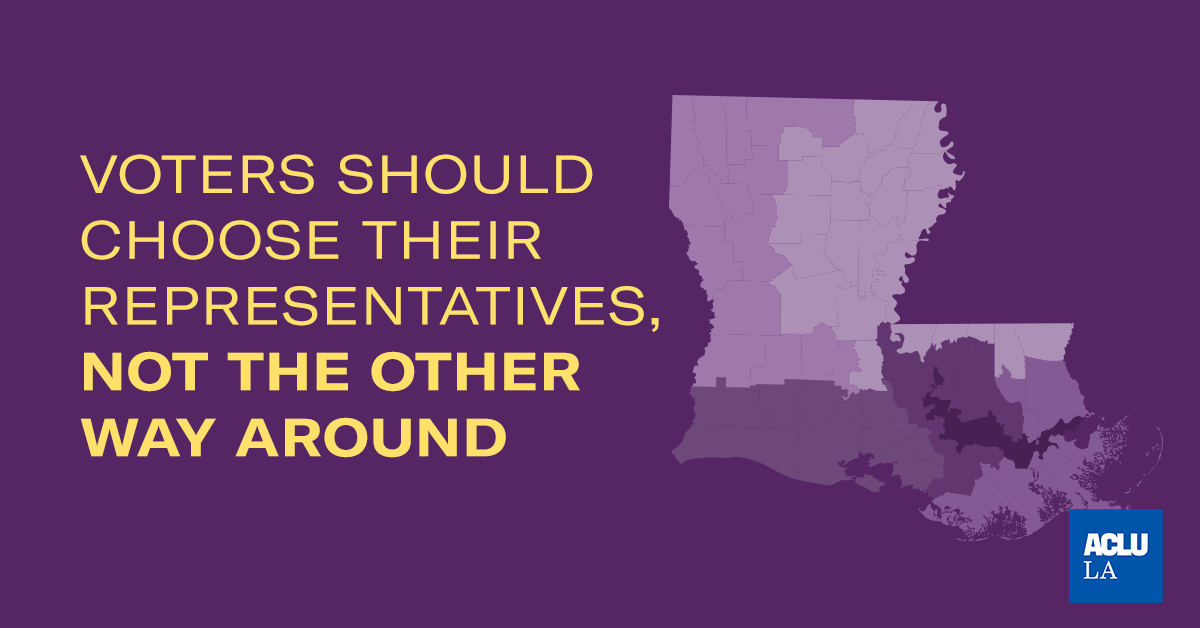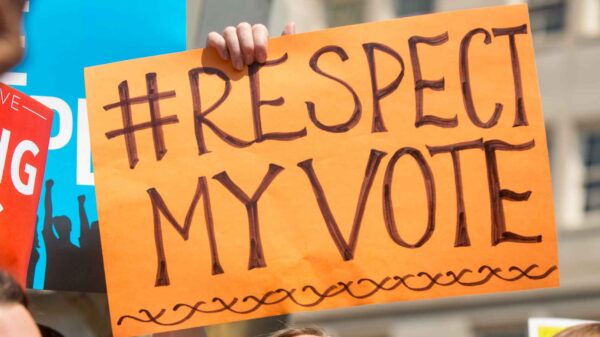Right now, Louisiana and other states across America are in the middle of a once-in-a-decade opportunity to draw district lines that shape who represents us in Congress and in the legislature.
The district lines that get drawn in the months ahead will determine if and how our political voice is heard in Washington and Baton Rouge for the next 10 years.
Ensuring unbiased redistricting shouldn't be about partisan politics, it should be about representation for the people and communities our leaders are supposed to serve. We're committed to teaching you all you need to know as quickly as possible because this fight is going to take all of us.
Public Hearing Dates
Make your voice heard! Plan on attending one of the redistricting hearing session near you. These public meetings give Louisianans the opportunity to demand a fair and transparent map drawing process.
Wednesday, Oct. 20th 5:30-8:30 p.m. -- University of Louisiana at Monroe
Thursday, Oct. 21st 5:30-8:30 p.m. -- Louisiana State University at Shreveport
Tuesday, Oct. 26th 5:30-8:30 p.m. -- University of Louisiana at Lafayette
Tuesday, Nov. 9th 5:30-8:30 p.m. -- Louisiana State University at Alexandria
Tuesday, Nov. 16th 5:30-8:30 p.m. -- Southern University, Baton Rouge
Tuesday, Nov. 30th 5:30-8:30 p.m. -- Fuhrmann Auditorium, Northshore/Covington
Wednesday, Dec. 15th 5:30-8:30 p.m. -- McNeese State University, Lake Charles
Wednesday, Jan. 5th 5:30-8:30 p.m. -- University of New Orleans
Tuesday, Jan. 11th 5:30-8:30 p.m. -- Nicholls State University, Bayou Region/Thibodaux
Thursday, Jan. 20 11:00 a.m. -- State Capitol
Early 2022 -- Extraordinary Session for Redistricting at the State Capitol
Frequently Asked Questions

What is redistricting? The United States Census Bureau provided 50 states, the District of Columbia, and Puerto Rico with population counts to use in their redrawing of electoral district maps for Congress, state legislatures, and many local offices—a process also known as “redistricting.” In Louisiana, the state legislature controls this process and has to approve any proposed maps.
What is gerrymandering? When district maps are drawn fairly, we are able to elect legislators who represent our values -- and fire the politicians who do not. But too often and in too many places, many politicians have abused the districting process to manipulate the outcome of elections. They've rigged the maps to make so they don't have to listen to their constituents. This anti-democratic phenomenon is called gerrymandering, and here in Louisiana, it's been one of the most dangerous methods of voter suppression.
Why are representative maps important? Representative maps are fundamental to ensure that every vote counts, and serve as the foundation of systemic equality for Black and Brown residents. This year we'll be demanding a transparent and fair redistricting process that ensures every Louisianan is represented equally. Our next set of electoral maps must represent everyone, upholding the Fourteenth Amendment’s guarantee of equal protection, and complying with the requirements of the Voting Rights Act of 1965. When voters of color are equally empowered and fairly represented, their concerns are more likely to be heard and addressed.
What can I do to help? Voters should choose their representatives -- not the other way around -- and every vote should count the same. We'll be working hard throughout this process to ensure both these things are true and that our state maps more fairly represent every Louisiana voter.
Beginning next month, legislative committees will hold hearings in communities across the state to inform the map-drawing process. This is our chance to have a say in the electoral maps that will determine our political representation for the next ten years.
Related Content

In Redistricting, Louisiana Lawmakers Must Prioritize People Over Politics
Stay Informed
Sign up to be the first to hear about how to take action.
By completing this form, I agree to receive occasional emails per the terms of the ACLU’s privacy statement.
By completing this form, I agree to receive occasional emails per the terms of the ACLU’s privacy statement.
